
Trooping Swiss colours in the UK

Ahead of federal elections in October, SWI swissinfo.ch headed to London to find out which issues are most important for Swiss citizens living in Brexit-battered Britain.
Trooping the Colour is an annual ceremony celebrating the official birthday of the British monarch. It involves a royal procession from Buckingham Palace down The Mall accompanied by various army regiments and military bands. This year’s parade, the first for King Charles III, was held on June 17. It was a scorching weekend and several soldiers fainted.
The same day, a few hundred metres away, 70 or so Swiss expats from all over the UK were gathering at the Swiss embassy, nestled between Regent’s Park and Hyde Park, for the annual general meeting of the Federation of Swiss Societies in the United KingdomExternal link (FOSSUK). No one fainted, but some temperatures were running high.
“This is not FOSSUK anymore,” declared one disgruntled regular, lamenting the absence of faces from Swiss clubs around the country. “The situation is awful,” said another.
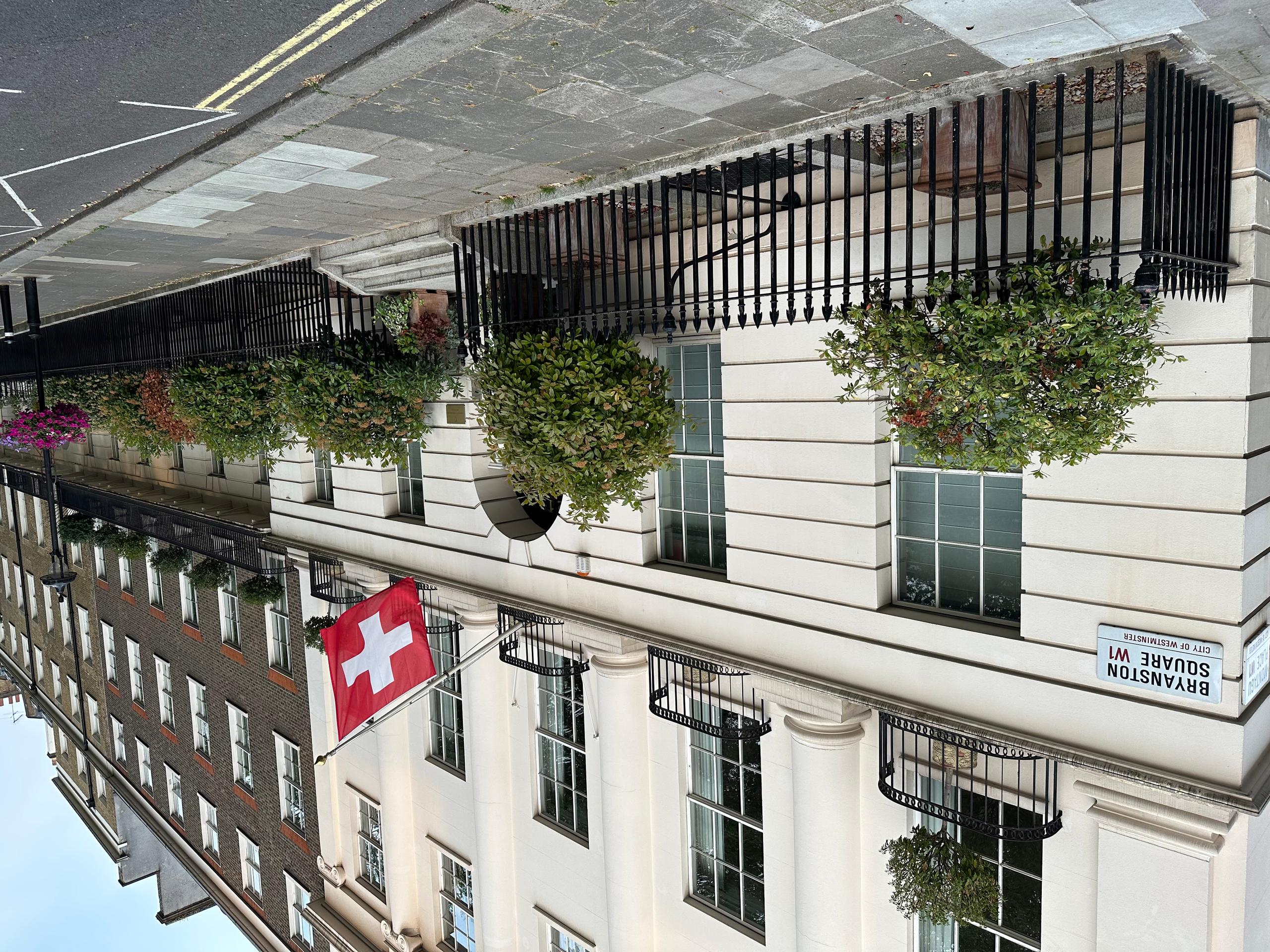
“London, we have a problem,” agreed Filippo Lombardi, the jovial president of the Organisation of the Swiss Abroad (OSA). “We have a communication problem, because how many of the 800,000 Swiss Abroad even know there is a Swiss community? How many of your 40,000 fellow Swiss citizens in the UK know there is an organisation to represent them?”

More
Swiss Abroad president says communication is still a challenge
The previous time I attended a FOSSUK annual meeting was in Cardiff in 2009. One of the biggest complaints back then was how hard it was attracting young members (cruelly, the predictive text on my phone always wants to change “FOSSUK” to “fossil”). Almost 15 years later, the challenge of keeping the many Swiss clubs dotted around the UK populated, connected and part of the umbrella organisation hasn’t got any easier.
“People don’t want to join clubs as such because there’s a membership fee – even though it’s like only a fiver [£5],” said FOSSUK’s indefatigable president Ané-Mari Peter. “I think we’re dealing with a Facebook generation where people are not so into the entire structured thing and the kind of formalities of the old days – having to be a committee member and having to sign up. People are like, ‘Seriously, it’s easier to get into [celeb-popular restaurant] Nobu’.”
FOSSUK, the Federation of Swiss Societies in the United Kingdom, is a voluntary, non-profit making, non-party political organisation which promotes communication between Swiss clubs and societies in the UK and the wider community of Swiss living and working in the UK.
Originally constituted in London in 1949 as The Presidents’ Assembly it was later renamed at the annual general meeting in 1965.
FOSSUK and its constituent societies, clubs and institutions fall within the general guidelines of the Bern-based Organisation of the Swiss Abroad (OSA). FOSSUK currently comprises six corporate paid members with voting rights: Unione Ticinese, New Helvetic Society, Edinburgh Swiss Club, East Surrey Swiss Club, Swiss Club Guernsey, Swiss Club Manchester.
FOSSUK has two associate members (fee paying, but without voting rights): the Swiss Benevolent Society and the Swiss Church London.
With its members, FOSSUK co-organises multiple discussion forums (in-person and online) and is working on future events such as a Jungburgerfeier (young citizens’ celebration).
FOSSUK also plans and oversees the election every four years of the five UK delegates to the Council of the Swiss Abroad (CSA) – the representation of views, issues and policies affecting the Swiss who live and work in the UK. The current term is 2021-2025.
Peter stressed that the health of the Swiss clubs in Britain was “absolutely excellent” and there were loads of informal clubs and people seeking communication. “For example, I’ve got a new WhatsApp London Swiss group and they have no interest in becoming a formalised club, but we have a great time. We went to Greenwich the other day and had a picnic. So I’m meeting a lot more Swiss people. But the structure imposed by Bern – that you have to have this kind of official capacity – I think, for that, the days are numbered.”
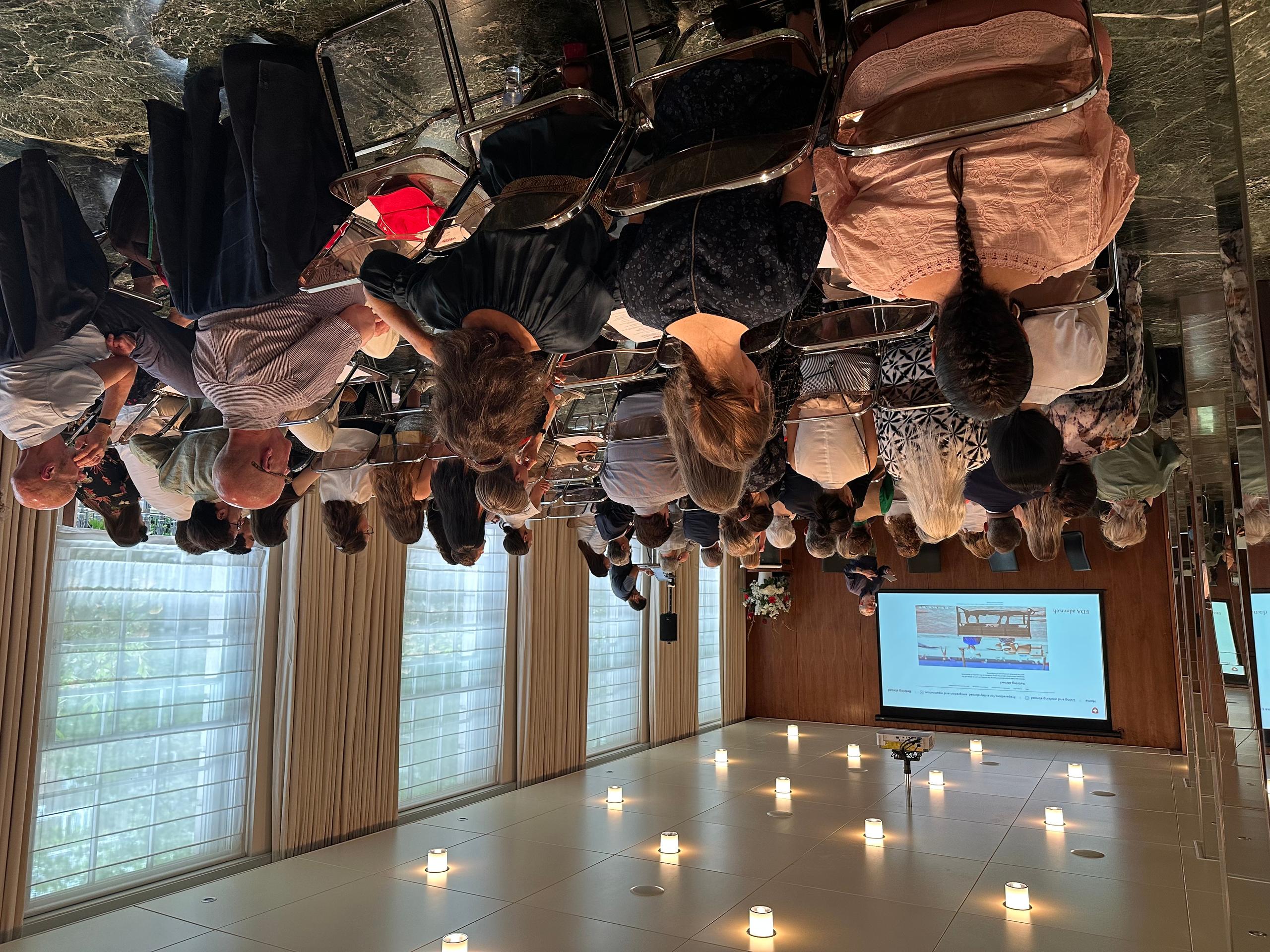
Lombardi acknowledged the importance of “lively” Swiss clubs, but he stressed that in order to have a weight inside the Swiss community abroad, they have to be united – “and national umbrella organisations like FOSSUK are the instrument to federate these clubs, to give them more weight, and to exchange best practice, experiences and projects”.
‘Voting is precious’
A tenth of the Swiss population lives abroad and is spread all around the world – “five countries have no Swiss citizens: a few islands in the Pacific and Uzbekistan”, as one speaker in London pointed out.
Of these 800,000 emigrants, around a quarter are registered to vote, and of those, about a quarter actually do. So, how do you get more people voting?
“I think there are two answers to this. On the one hand there’s the administrative side, and we really try to encourage hurdles to be removed. So Swiss people abroad don’t have to worry about endless registration procedures,” said former FOSSUK delegate Michelle Hufschmid.
“And then the other thing is, as a normal voter, people often think their vote doesn’t matter. But we really try to tell every single person that if you are abroad, you’re still connected to Switzerland and you might still in some way be affected, so go out and vote and give your voice because it really is at the heart of what democracy is.”
A video interview with Michelle Hufschmid:
FOSSUK vice-president and secretary Joelle Nebbe-Mornod highlighted one significant difference between Swiss living abroad and Brits living abroad.
“I think voting is precious, because I’ve met so many Brits who are so upset that they lose their right to vote [after living outside the UK for 15 years] and we get to keep ours. And that’s amazing. But we can’t take it for granted, because it could change any time. Switzerland could vote against it one day, so we have to be responsible with it and use it,” she said.
A video interview with Joelle Nebbe-Mornod:
E-voting trial
One big change since my trip to Cardiff in 2009 is the evolution of e-voting. Indeed, the day after the FOSSUK gathering, three cantons – Basel City, Thurgau and St Gallen – took part in an e-voting trial. Some 3,600 Swiss Abroad voted online in federal referendums for the first time since 2019, when the technology was mothballed owing to security concerns.
The results were generally positive, and on August 16 the government saidExternal link the same three cantons could continue the trial (for a limited section of the electorate) for federal elections to the House of Representatives on October 22.
Franz Muheim, FOSSUK delegate and a member of the OSA executive board, compared online voting to online banking. “I’m a physicist and I was there when the World Wide Web was born, and for the first year or two we had it to ourselves – it was a great time!” he said.
“We were talking about what to do, and someone said ‘the banks could use that’, and we all immediately jumped on him and said ‘if you go to a bank and propose this, you’ll be fired immediately’. Within ten years e-banking became a possibility.”
Muheim acknowledged that e-voting was certainly challenging because of the need for secrecy as well as certainty, but he was sure it would happen. “It will take time, but we’ll all look back on e-voting just as we do now on e-banking.”
E-voting is one of the main issues for FOSSUK delegate Loredana Guetg Wyatt. In this video she discusses that and other challenges facing Swiss residents in the UK, such as pensions and health insurance.
A video interview with Loredana Guetg Wyatt:
Life in Britain
While the implementation of online voting affects Swiss Abroad all around the world, there are certain issues specific to expats in Britain. The country’s reputation for political competence and maturity has been shredded by a series of prime ministers who have resigned in disgrace and it is currently in the throes of a cost-of-living crisis exacerbated by Brexit. The 2016 vote to leave the European Union “has significantly worsened the country’s economic performance”, according to the economic consensusExternal link.
“Let’s not even talk about my business,” Nebbe-Mornod, the UK’s main importer of Alpine winesExternal link, said with a sigh. “The costs of anything you import, whether it’s something I import or something we buy that’s been imported, has increased.”
What’s more, there have been negative social repercussions. “The xenophobia has increased,” she said. “I’d never had anybody be nasty to me, but I had that on the train – closer to Brexit, not anymore. You know, speak German on the phone and you get people mouthing off at you. It’s a bit concerning. It’s hard to criticise them since [Switzerland] isn’t in the EU either, but it’s made everything more complicated. And we don’t have the full impact yet because [the British government] haven’t actually implemented all the changes – they keep pushing them back.”
The relatively good news, however, is that despite Switzerland’s reputation also taking a battering recently – there was criticism of the Swiss government’s refusal to allow the re-export of weapons to Ukraine and then the implosion of bank Credit Suisse – this seems not to have made an impression on the Brit in the street.
Swiss woes are the last thing on the mind of beleaguered Brits, reckoned Loredana Guetg Wyatt. “With all the crises and scandals here, they probably didn’t take that much notice of Switzerland,” she said.
‘Brilliant future’
Filippo Lombardi’s mission isn’t so much to make Brits aware of Switzerland, but to make Swiss living in Britain aware of each other and of the various institutions available to the Swiss Abroad, such as the SwissInTouch appExternal link or the SoliswissExternal link information and advice centre.

More
‘SWIplus’ app to strengthen political participation of the Swiss Abroad
“Each of us is an influencer,” he said. “Use all of the channels to transmit the flame of the Swiss identity, the will to stay together, to work together, to represent the country.”
He stressed that it wasn’t only on August 1, Swiss National Day, that expats should fly the flag for Switzerland. “We have to do it all year round. Every one of us should be an ambassador every day – to transmit this message among other Swiss people and to make our community a lively community with a brilliant future!”
Pumped up, it was decided that the only thing to do was to head to a Swiss restaurant and, yup, have a cheese fondue. There’s a time and place for 200 grams of molten cheese and some might argue that a heatwave isn’t it, but, applying that fundamental Swiss trait of not causing a scene, I went along with it. Walking into the St Moritz restaurant in Soho and being hit by the overpowering smell of Gruyère – that really is something to make you faint.
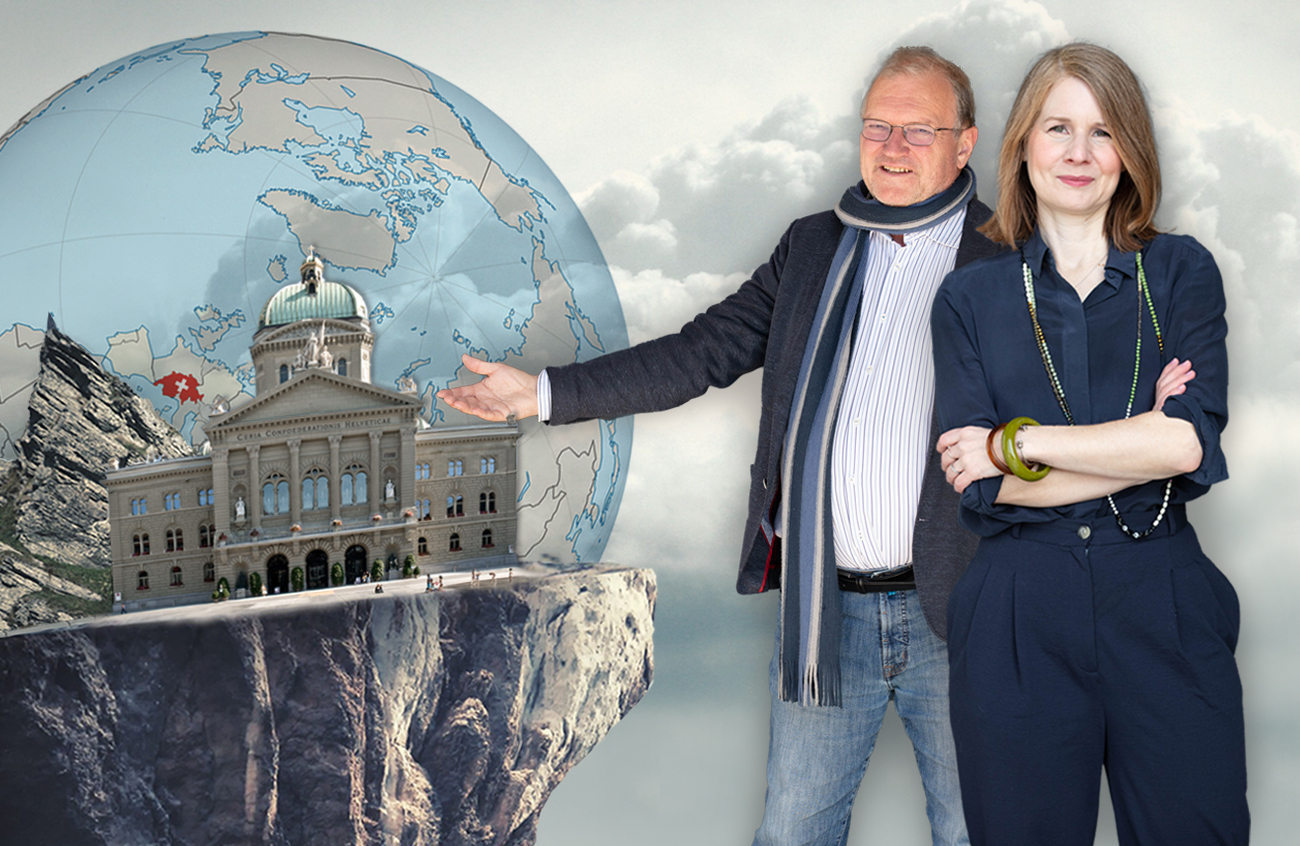
More
Who are the Swiss Abroad?
More

In compliance with the JTI standards
More: SWI swissinfo.ch certified by the Journalism Trust Initiative































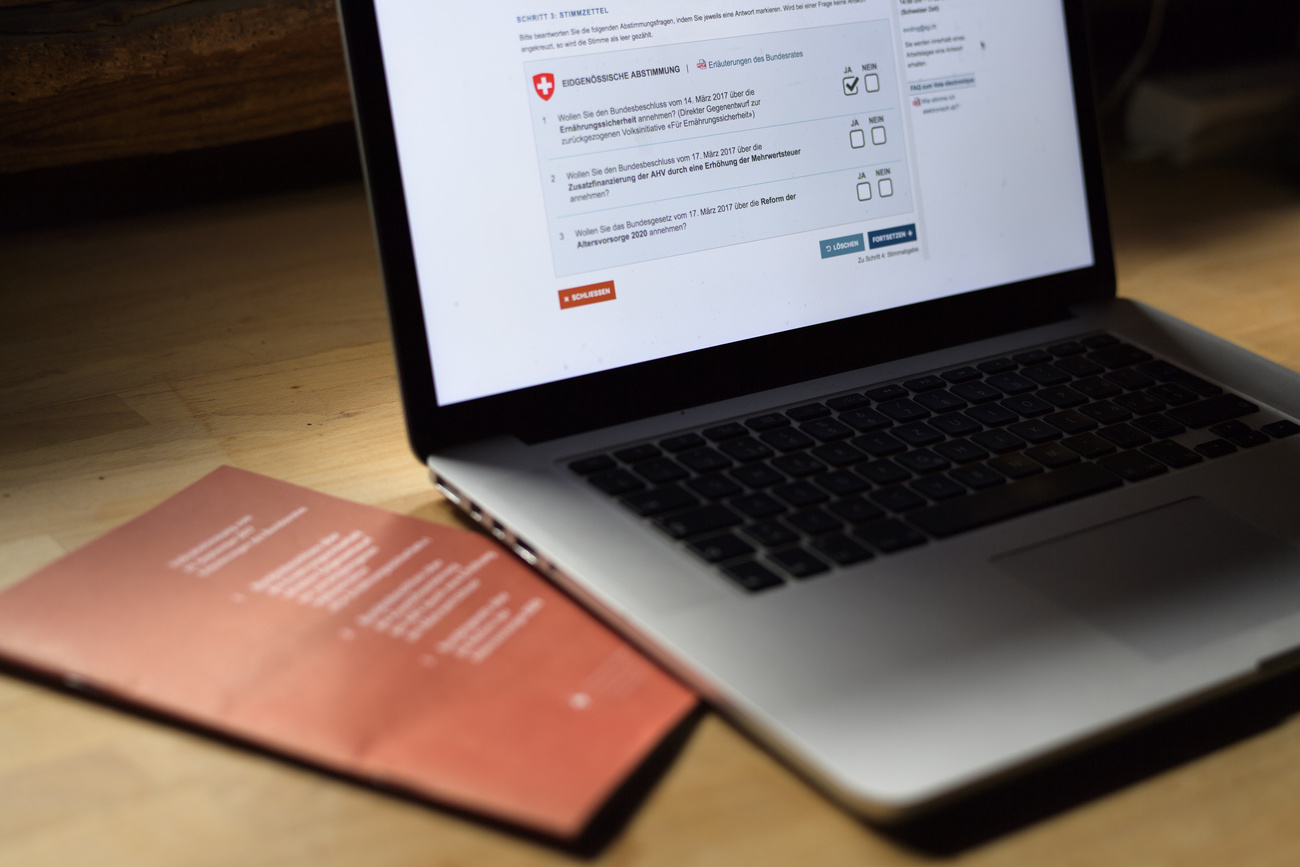
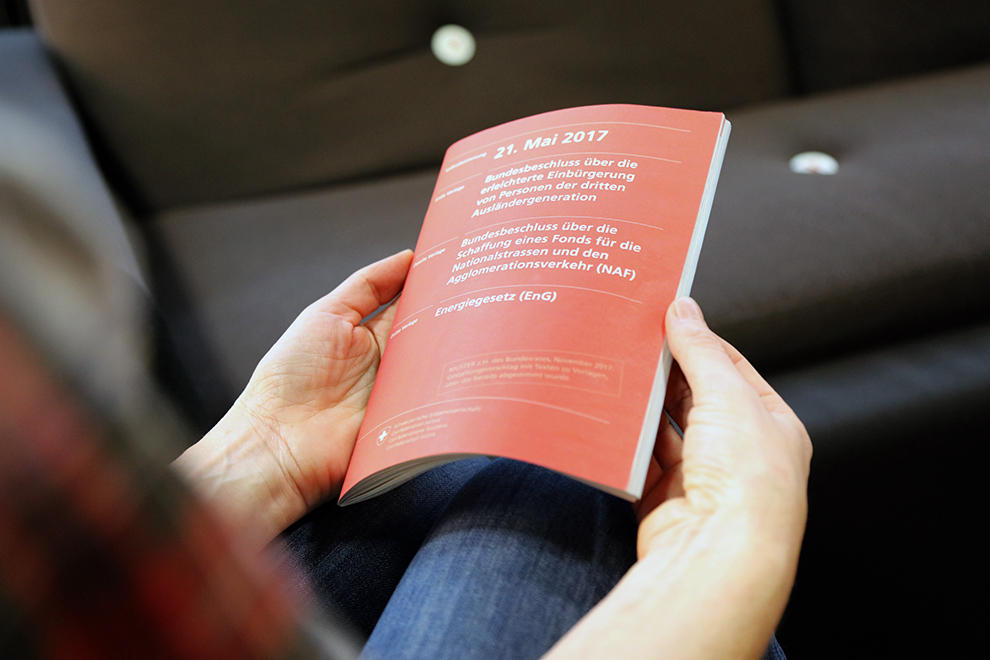
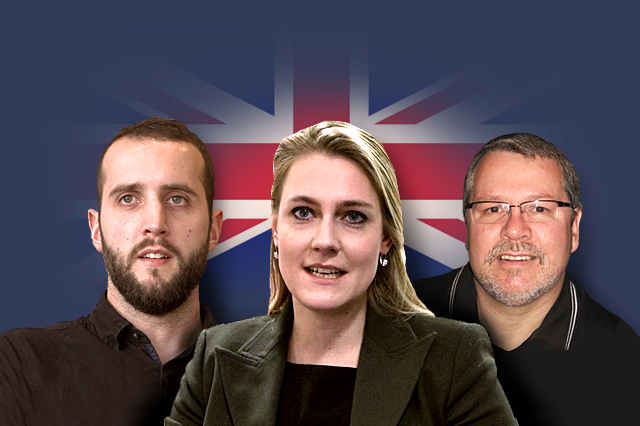

You can find an overview of ongoing debates with our journalists here . Please join us!
If you want to start a conversation about a topic raised in this article or want to report factual errors, email us at english@swissinfo.ch.